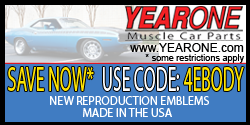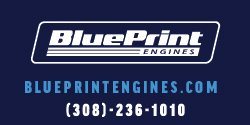pschlosser
Well-Known Member
Maybe I’m naive, but my efforts to rebuild my own brake parts have been thwarted by a couple of problems: finding DIY-rebuildable cores and locating rebuild kits.
When you buy a used brake cylinder or master cylinder, and find the pistons are rusty and some even frozen/seized, it seems like you're looking at a need to send the item out to be professionally sleeved, which after shipping and fees, adds up to $$$.
I’m hearing others suggest sending the core to be sleeved is standard procedure. But this only seems worth doing on a numbers-matching and/or date code-correct part. For anything else, it seems like a losing proposition. A more direct approach is buying the NOS part or one already rebuilt. Either option is premium $$$.
NOS repair kits contain good quality parts, and they’re premium $$$ (compared to local part’s store kits). They are worth it, if you can find NOS kits. But when I find a lower-costing NOS kit on ebay, I see it is missing parts. I believe what happens is an NOS kit gets robbed of one or two parts. Over the years, the incomplete kits changes hands at swap meets, and end up on ebay.
The online repair kit catalogs seem wrong about as often as they are right. I’ve bought some “made in china” Dorman kits, and a few of them are flat out wrong, not even the correct fitting parts. You cannot rely on a seller’s claim on ebay.
I am learning some tips:
Tip #1, when buying a used brake M/C or wheel cylinder, you want a part where the pistons still move. This can be easily tested with the part off the car. If you don’t have the strength to move the piston, it may be seized.
And it pretty much only seizes as a result of rust. And rust means the possibility of pitting in the cylinder. We can hone the cylinders, but it will only resolve light rust. Deeper rust will still have a pit after honing, and probably leak once rebuilt.
Tip #2, if the threads on the hydraulic fittings are rusty, then the internal areas have been exposed to air for considerable time, and the inner cylinder is likely rusty as well.
I completed a recent M/C rebuild, where the threads were rusty, and I found evidence of dirt and mud inside. I honed the cylinder, it felt smooth to the touch, but leaks after rebuild and testing. Bummer.
Tip #3, don’t be afraid of rust. Rust on the outside is common and even expected on a used part. But watch out for signs of rust on the inside.
Tip #4, know your parts. Know the bore diameter and confirm you’re buying the correct repair kit. Learn the part number of the kit, and what a complete kit looks like.
Tip #5, buy NOS repair kits if you can afford them, but make sure they are complete kits. Some good vintage repair kit names include Bendix, Raybestos and Wagner. Many of the Mopar kits were in fact, made by these names. If you know the part number of the kit you want, and it looks complete, you’re pretty safe.
When you buy a used brake cylinder or master cylinder, and find the pistons are rusty and some even frozen/seized, it seems like you're looking at a need to send the item out to be professionally sleeved, which after shipping and fees, adds up to $$$.
I’m hearing others suggest sending the core to be sleeved is standard procedure. But this only seems worth doing on a numbers-matching and/or date code-correct part. For anything else, it seems like a losing proposition. A more direct approach is buying the NOS part or one already rebuilt. Either option is premium $$$.
NOS repair kits contain good quality parts, and they’re premium $$$ (compared to local part’s store kits). They are worth it, if you can find NOS kits. But when I find a lower-costing NOS kit on ebay, I see it is missing parts. I believe what happens is an NOS kit gets robbed of one or two parts. Over the years, the incomplete kits changes hands at swap meets, and end up on ebay.
The online repair kit catalogs seem wrong about as often as they are right. I’ve bought some “made in china” Dorman kits, and a few of them are flat out wrong, not even the correct fitting parts. You cannot rely on a seller’s claim on ebay.
I am learning some tips:
Tip #1, when buying a used brake M/C or wheel cylinder, you want a part where the pistons still move. This can be easily tested with the part off the car. If you don’t have the strength to move the piston, it may be seized.
And it pretty much only seizes as a result of rust. And rust means the possibility of pitting in the cylinder. We can hone the cylinders, but it will only resolve light rust. Deeper rust will still have a pit after honing, and probably leak once rebuilt.
Tip #2, if the threads on the hydraulic fittings are rusty, then the internal areas have been exposed to air for considerable time, and the inner cylinder is likely rusty as well.
I completed a recent M/C rebuild, where the threads were rusty, and I found evidence of dirt and mud inside. I honed the cylinder, it felt smooth to the touch, but leaks after rebuild and testing. Bummer.
Tip #3, don’t be afraid of rust. Rust on the outside is common and even expected on a used part. But watch out for signs of rust on the inside.
Tip #4, know your parts. Know the bore diameter and confirm you’re buying the correct repair kit. Learn the part number of the kit, and what a complete kit looks like.
Tip #5, buy NOS repair kits if you can afford them, but make sure they are complete kits. Some good vintage repair kit names include Bendix, Raybestos and Wagner. Many of the Mopar kits were in fact, made by these names. If you know the part number of the kit you want, and it looks complete, you’re pretty safe.



















